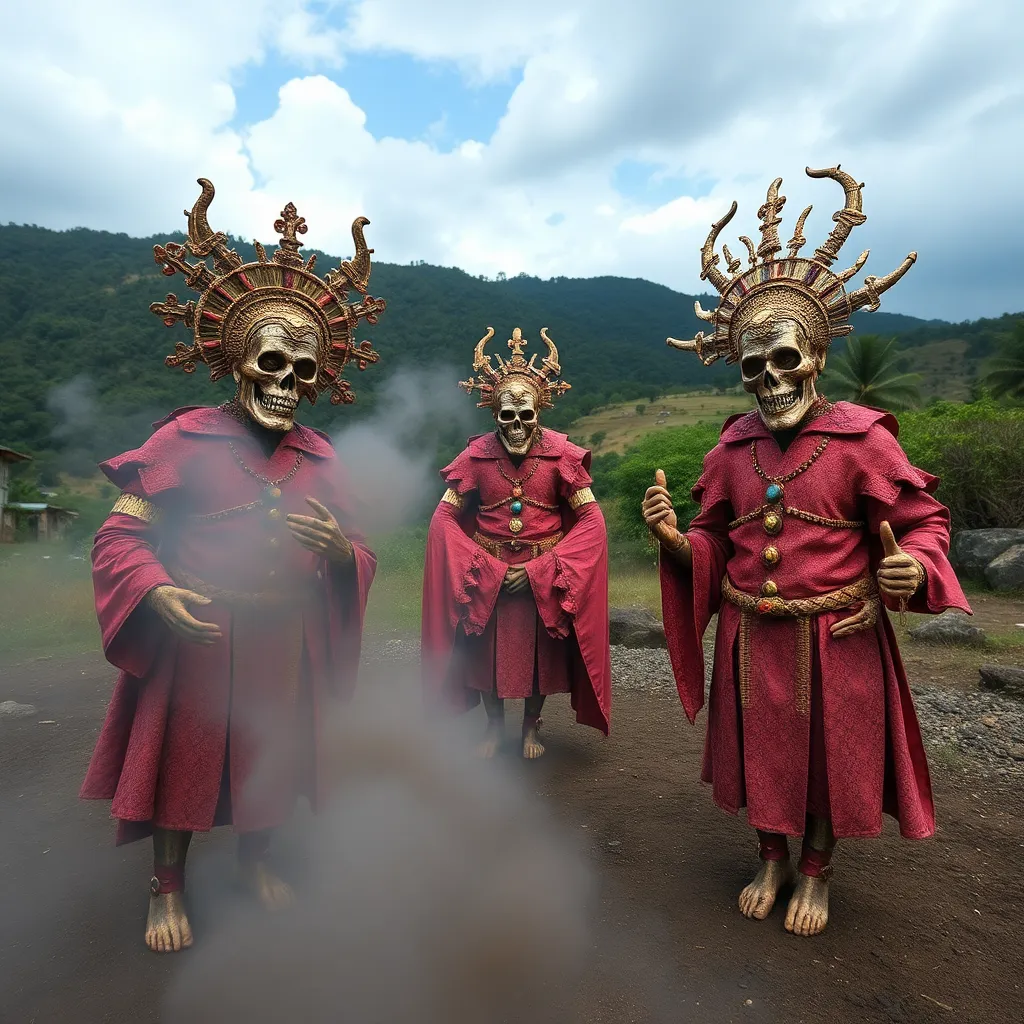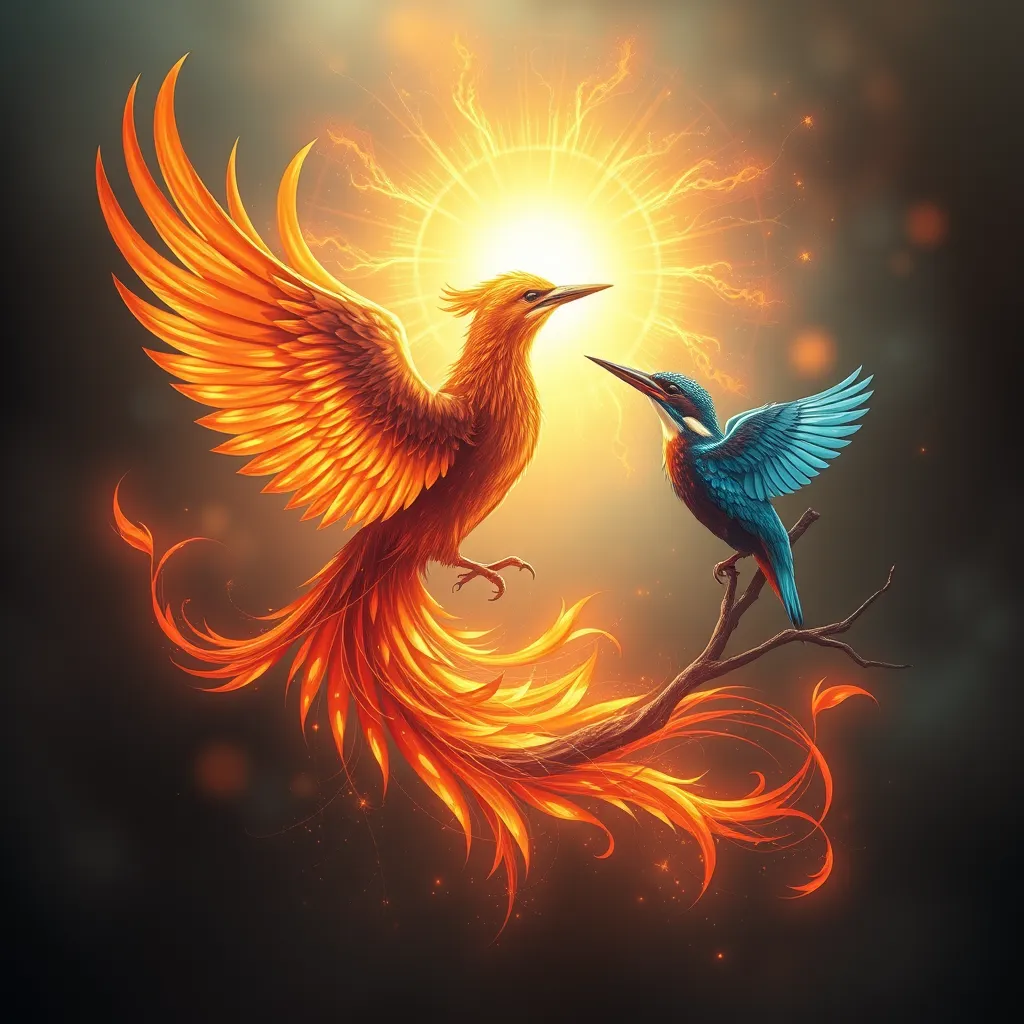The Masters of the Dead: Understanding the Bokor and their Role in Haitian Voodoo
I. Introduction to Haitian Voodoo
Haitian Voodoo, often misunderstood and misrepresented, is a rich spiritual and cultural tradition that blends African ancestral beliefs with elements of Christianity and indigenous practices. It emerged from the experiences of enslaved Africans who brought their religious beliefs to the New World, adapting them to their new environment.
The significance of Voodoo in Haitian culture is profound, serving as a source of identity, community, and resistance against oppression. It encompasses a wide array of practices, beliefs, and rituals that are deeply rooted in the everyday lives of many Haitians.
Among the key figures in Voodoo is the Bokor, a practitioner who stands at the intersection of light and dark, embodying complex roles within this spiritual framework.
II. Who are the Bokor?
The term “Bokor” refers to a specific type of Voodoo practitioner who is often associated with sorcery and the manipulation of spiritual forces. Bokors are unique in their ability to work with both benevolent spirits and malevolent forces, making them pivotal figures in the Voodoo tradition.
Historically, the emergence of the Bokor can be traced back to the need for protection and healing within Haitian society, particularly in times of crisis. They became integral to communities, often sought after for their knowledge of the spiritual realm.
It is essential to distinguish between Bokors and other Voodoo practitioners such as Houngans (male priests) and Mambos (female priests). While Houngans and Mambos primarily serve the community through religious practices and rituals, Bokors often operate in a more ambiguous realm, dealing with both light and dark magic.
III. The Duality of the Bokor’s Role
The role of the Bokor is characterized by duality. On one hand, they act as healers and protectors within their communities. They are consulted for remedies and spiritual guidance, using their knowledge to help those in need.
On the other hand, Bokors also engage in sorcery, using their skills to cast spells, control spirits, and, in some beliefs, create zombies. This darker aspect of their practice raises ethical questions and concerns about their influence on others.
- Healer and Protector: Bokors provide spiritual healing, protective charms, and guidance.
- Sorcerer and Practitioner of Dark Magic: They may utilize their powers for harm or control, raising ethical dilemmas.
IV. Rituals and Practices of the Bokor
The rituals performed by Bokors are varied and often intricate. They may involve:
- Chanting and invoking spirits
- Creating potions and herbal remedies
- Using talismans for protection or to cast spells
Herbs and natural ingredients play a vital role in Bokor rituals. The knowledge of these plants and their properties is passed down through generations. Communication with the spirit world is paramount, often achieved through trance states or offerings to the spirits.
V. The Bokor and the Concept of the Undead
One of the most intriguing aspects of the Bokor’s role is their connection to the belief in zombies. In Haitian culture, zombies are not merely fictional beings; they are considered to be individuals who have been brought back from the dead through supernatural means.
The Bokor is believed to have the power to create and control zombies, often using a combination of spiritual and pharmacological methods. This practice is steeped in cultural interpretations and myths that vary from one community to another, leading to a complex and sometimes frightening understanding of death and the undead.
VI. The Bokor in Contemporary Haitian Society
Over time, the role of the Bokor has evolved, influenced by globalization and modernization. While traditional practices continue, many Bokors adapt their rituals to fit contemporary contexts, often incorporating new beliefs and practices.
The impact of globalization has also led to a resurgence of interest in Voodoo, with some Bokors gaining recognition as cultural ambassadors. However, this modernization has created tensions between traditional beliefs and newer interpretations of Voodoo.
In modern Haitian society, the perception of Bokors is mixed. Some view them with reverence, while others may regard them with suspicion due to their association with dark magic.
VII. Misconceptions and Stereotypes
Despite their significance, the figure of the Bokor is often surrounded by misconceptions. Common myths include:
- All Bokors are evil and solely practice dark magic.
- The concept of zombies is purely a horror trope with no basis in reality.
- Bokors can control anyone’s mind or actions at will.
The influence of media and popular culture has exacerbated these stereotypes, often portraying Voodoo practitioners as sinister figures. It is crucial to approach the subject with cultural sensitivity and an open mind, recognizing the depth and diversity of Voodoo practices.
VIII. Conclusion
In summary, the Bokor plays a significant and multifaceted role in Haitian Voodoo, serving as both a healer and a sorcerer. Understanding their place within this rich cultural tradition requires respect and acknowledgment of the complexities involved.
As we continue to explore and learn about Voodoo and its practitioners, it is vital to approach these subjects with respect and an understanding of the cultural significance they hold for many individuals and communities.
By fostering a deeper appreciation for Voodoo traditions, we can cultivate greater understanding and respect for the diverse practices that shape human experiences around the world.



